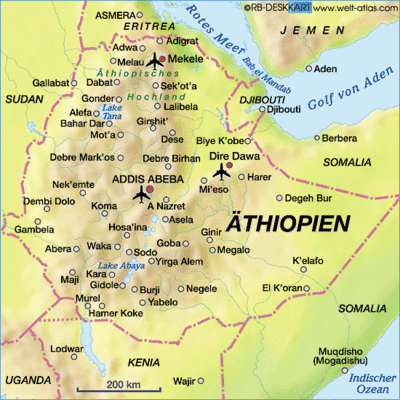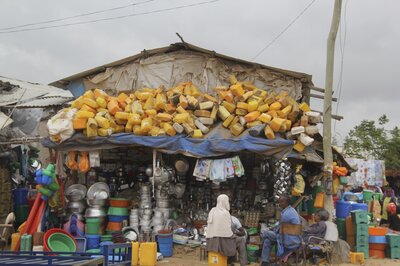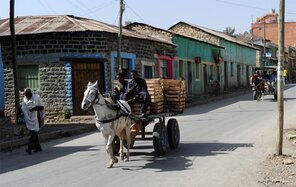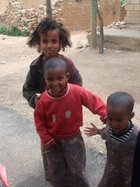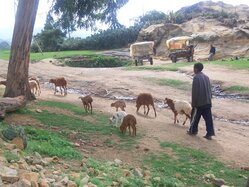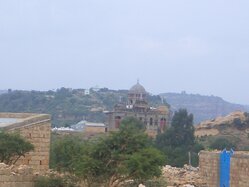War in Tigray November 2020
The situation in Adigrat and the whole of Tigray changed dramatically in November 2020. After the ruling TPLF (Tigray People's Liberation Front) party in Tigray increasingly took separatist steps on its own without the approval of the Ethiopian government in Addis Ababa and thus the Prime Minister Dr. Abey Ahmed, who was elected in 2018, was considered unacceptable, the conflict culminated in the invasion of the region by government troops. Eritrean soldiers have also occupied parts of the country since then, with fierce fighting reported between the TPLF and Ethiopian and Eritrean troops. In addition, massacres of the civilian population, looting and horrific rapes are the order of the day throughout the region. Most of the existing infrastructure is destroyed, resulting in massive hunger and a lack of care for people's physical and mental health, some of which is non-existent.
Aid agencies and journalists have only been slowly allowed into the country to help and report since about April 2021.
The Situation on Site
Ethiopia is still one of the poorest countries on earth, with a population of approx. 80 million and an average annual per-capita income of of approx. US$ 220. The majority of the population live on the absolute margins of poverty. In the Human Development Index 2020, Ethiopia ranks 173th among 189 countries. More than 50% of the population are illiterate. Although school attendance is officially mandatory, by no means all children go to school. They are often left to their own devices until they are old enough to work. In the cities, about 70% of the children attend primary school, and about 40% go on to secondary school. Girls even more rarely have the opportunity to go to school, because they must help with housework starting at the age of four. And the situation in rural areas is far more difficult. Also, AIDS is widespread in Ethiopia: it is estimated that about 1.2 million children are AIDS orphans, for whom support services are problematic.
The situation of women is particularly difficult. The percentage of women who can read and write is far less than that of men. Even today, girls are often forced to marry the suitor offering the most money and are still often victims of genital mutilation. Divorces are very easily possible without the ex-husband being obliged to make payments for existing children. A woman cannot inherit her father’s property, not even that of her husband. If she has no children or has only given birth to girls, she is not allowed to remain on her deceased husband’s land.
The city of Adigrat is located in the north of Ethiopia, near the border with Eritrea, and has a current population of approx. 150,000. Due to its proximity to the border, the city especially suffered in the course of two years of war with Eritrea. Adigrat is still a goal for many refugees. The city’s infrastructure is very inadequate: only a few households have running water, there is only one paved street, only one hospital, and far too few schools and kindergartens. Particularly children between the ages of three and six are often left on their own, have few opoortunities to develop in ways suitable for children or be prepared for possible attendance at school. Above all, girls have hardly any oportunities for development since they must take on a continually increasing share of housework, starting at the age of four or five.
Analysis of the situation on location showed that, although a few kindergartens do exist, they are very insufficient in view of the number of inhabitants. In addition, the few existing kindergartens are located in the northern or central parts of Adigrat, while the now densely-settled southern part of the city has had no facilities of this kind until now.
